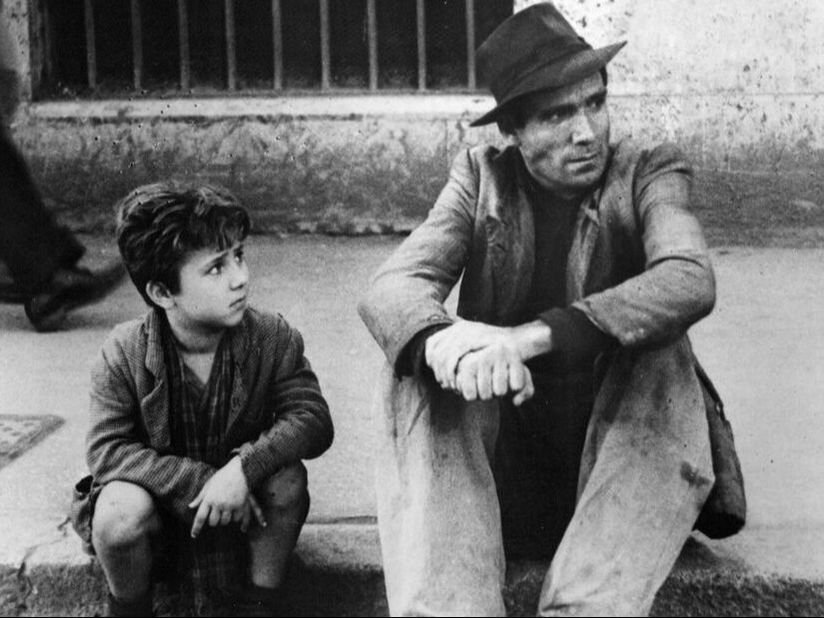|
A working class father hunts down his stolen bicycle,
without which he cannot find work to support his family. DRAMA
|
Bicycle Thieves (1948)Directed by Vittorio De Sica
Written by Oreste Biancoli, Suso D'Amico, Vittorio De Sica, Adolfo Franci, Gherardo Gherardi, Gerardo Guerrieri, Cesare Zavattini Starring Lamberto Maggiorani, Enzo Staiola, Lianella Carell Based on the novel by Luigi Bartolini Oscar Wins - Best Foreign Film (Honorary Award) Oscar Nominations - Best Adapted Screenplay |
Bicycle Thieves is so damn simple. It's no wonder it's become one of the most celebrated films of the neorealist movement. It's a building block film, inspiring countless others, particularly in Italy. This is a film about a working class father struggling to make ends meet in an Italy dealing with the fallout of World War II and the end of a fascist regime. And what happens? Some asshole steals his bicycle, which means he can't work. Talk about relatable.
Antonio (Maggirorani) and his wife Maria (Carell) are struggling, like so many others. Work is scarce, but Antonio manages to snag a job putting up advertisements. But, for some reason, he can't get the job unless he has a bicycle. Maria pawns their bedsheets so Antonio can get his bike back, which is a remarkably sad scene. On his first day of work, the bike is stolen. The rest of the movie follows Antonio and his young son Bruno (Staiola) as they try to get the bike back. But things don't always work out, and sometimes the bad guy wins. Sometimes you become the very thing that made your life so difficult. Bicycle Thieves may be a little slow for people, but I found it intriguing. You can't help but empathize with Antonio, and later with Bruno as he watches his father descend into madness. When a job putting up posters is the only way your family can eat, and you lose that job because of someone else's selfish actions, how do you not lose faith in humanity? The ending is left somewhat ambiguous, but I think we all know he's never getting the bike back and he's going to lose everything. It's hard to take in, because we as the audience have come to expect some form of closure. Instead, you're left with "shit happens." |
